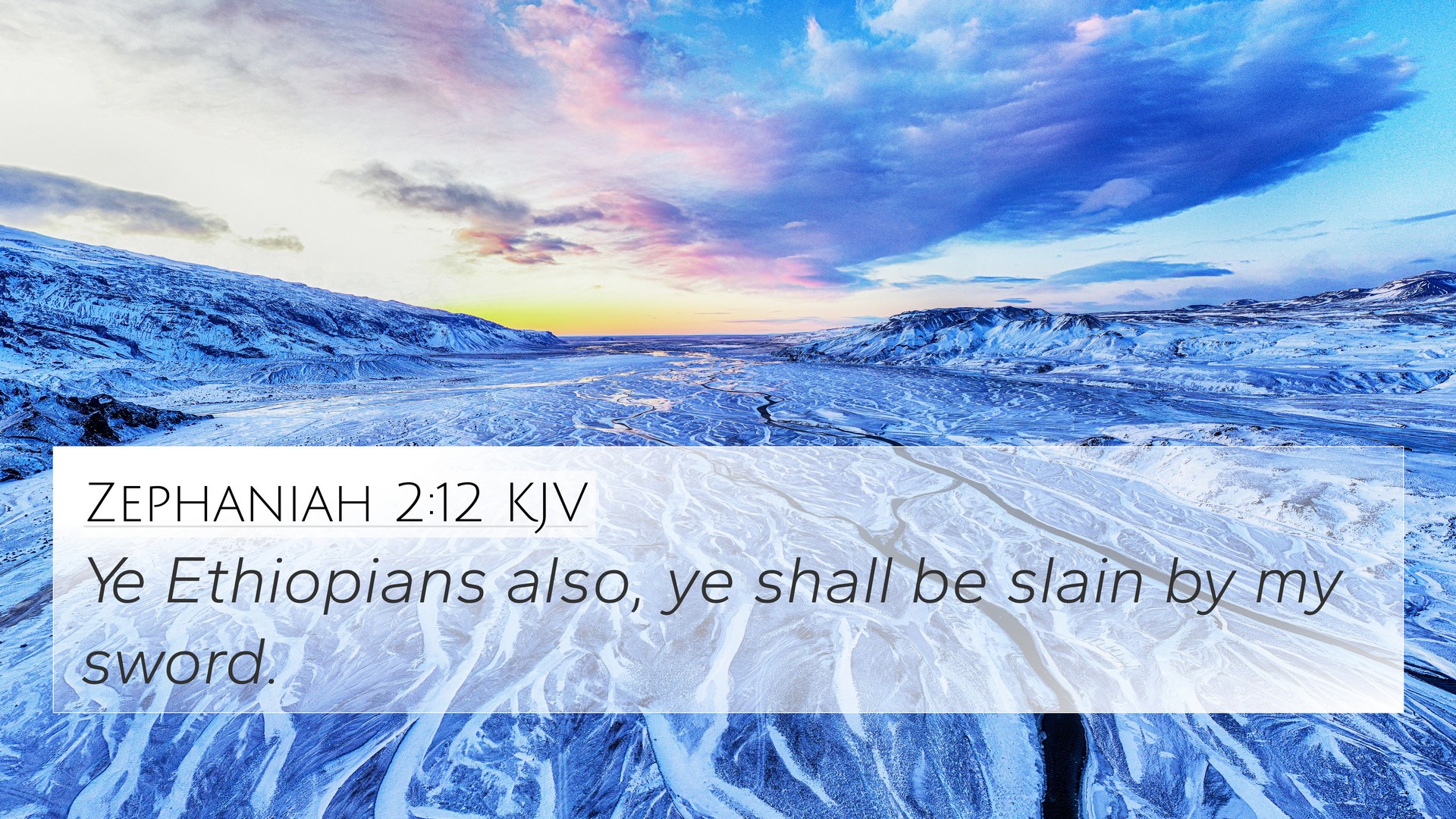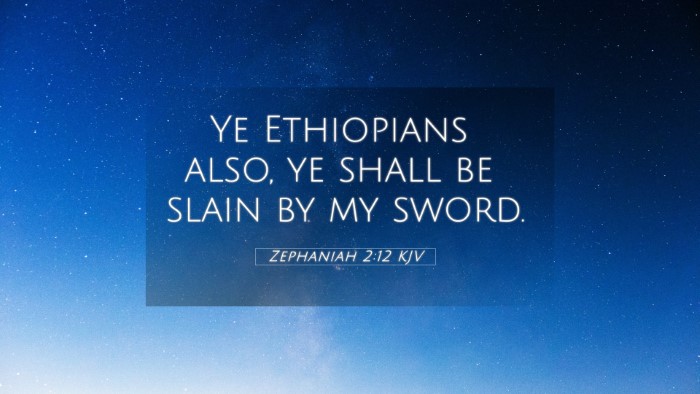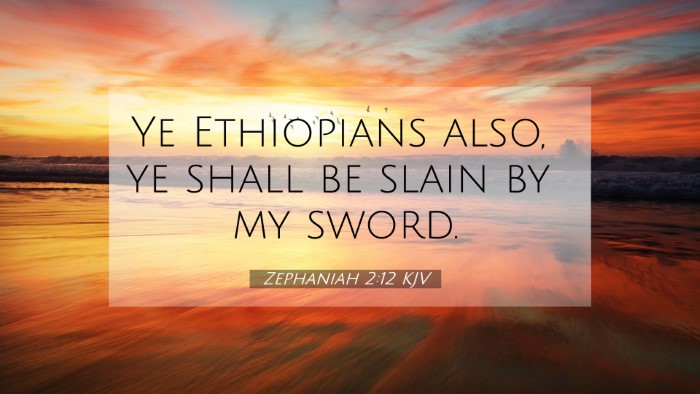Old Testament
Genesis Exodus Leviticus Numbers Deuteronomy Joshua Judges Ruth 1 Samuel 2 Samuel 1 Kings 2 Kings 1 Chronicles 2 Chronicles Ezra Nehemiah Esther Job Psalms Proverbs Ecclesiastes Song of Solomon Isaiah Jeremiah Lamentations Ezekiel Daniel Hosea Joel Amos Obadiah Jonah Micah Nahum Habakkuk Zephaniah Haggai Zechariah MalachiZephaniah 2:12 Similar Verses
Zephaniah 2:12 Cross References
Ye Ethiopians also, ye shall be slain by my sword.
Uncover the Rich Themes and Topics of This Bible Verse
Listed below are the Bible themes associated with Zephaniah 2:12. We invite you to explore each theme to gain deeper insights into the Scriptures.
Zephaniah 2:12 Cross Reference Verses
This section features a detailed cross-reference designed to enrich your understanding of the Scriptures. Below, you will find carefully selected verses that echo the themes and teachings related to Zephaniah 2:12 KJV. Click on any image to explore detailed analyses of related Bible verses and uncover deeper theological insights.

Ezekiel 30:4 (KJV) »
And the sword shall come upon Egypt, and great pain shall be in Ethiopia, when the slain shall fall in Egypt, and they shall take away her multitude, and her foundations shall be broken down.
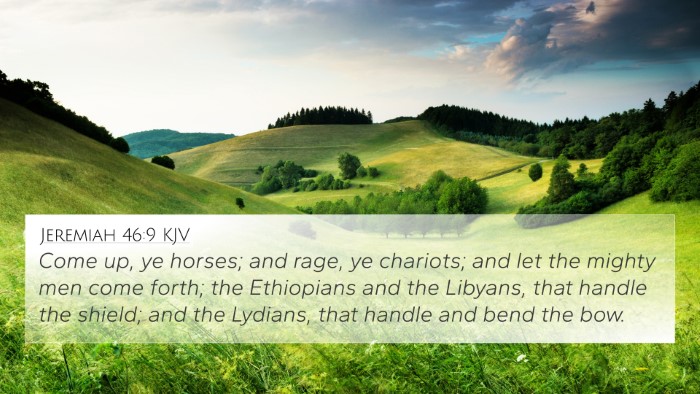
Jeremiah 46:9 (KJV) »
Come up, ye horses; and rage, ye chariots; and let the mighty men come forth; the Ethiopians and the Libyans, that handle the shield; and the Lydians, that handle and bend the bow.
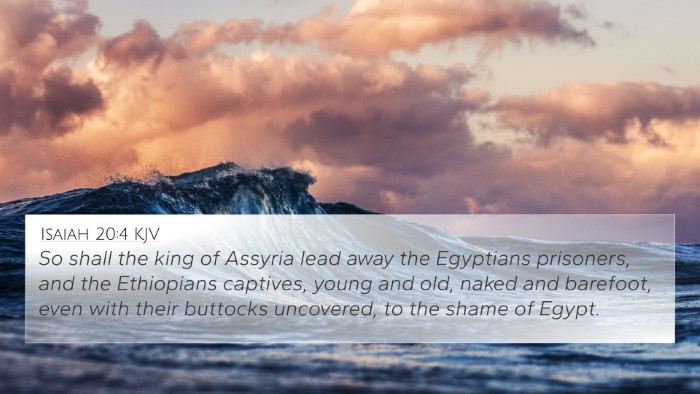
Isaiah 20:4 (KJV) »
So shall the king of Assyria lead away the Egyptians prisoners, and the Ethiopians captives, young and old, naked and barefoot, even with their buttocks uncovered, to the shame of Egypt.
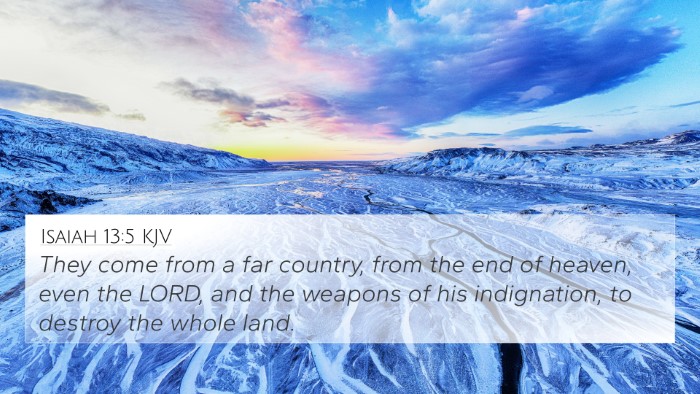
Isaiah 13:5 (KJV) »
They come from a far country, from the end of heaven, even the LORD, and the weapons of his indignation, to destroy the whole land.
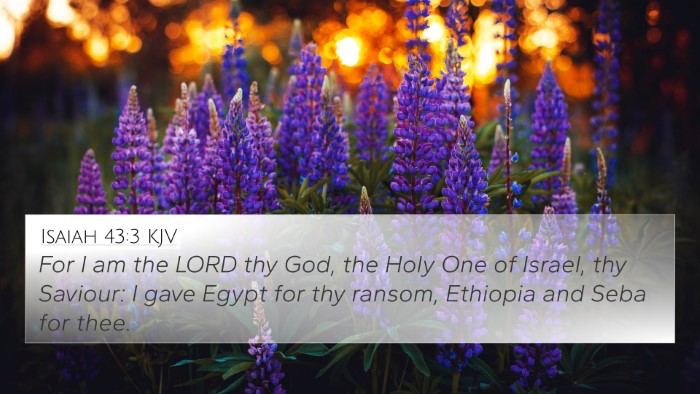
Isaiah 43:3 (KJV) »
For I am the LORD thy God, the Holy One of Israel, thy Saviour: I gave Egypt for thy ransom, Ethiopia and Seba for thee.
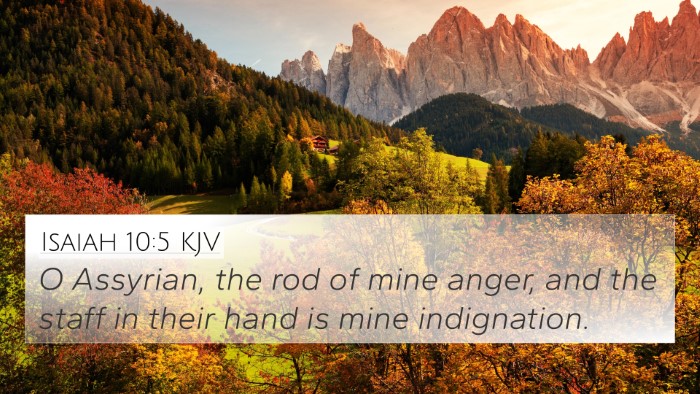
Isaiah 10:5 (KJV) »
O Assyrian, the rod of mine anger, and the staff in their hand is mine indignation.
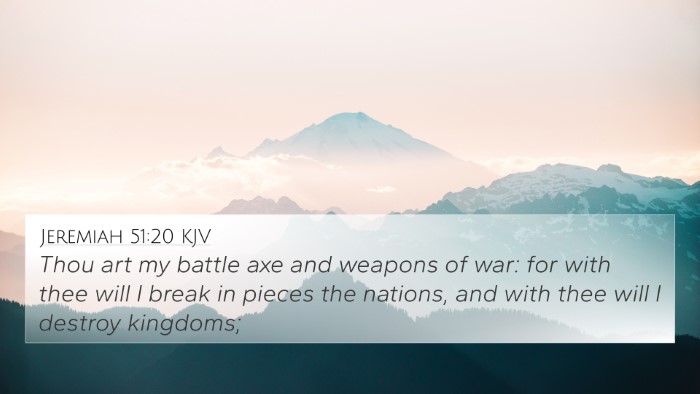
Jeremiah 51:20 (KJV) »
Thou art my battle axe and weapons of war: for with thee will I break in pieces the nations, and with thee will I destroy kingdoms;
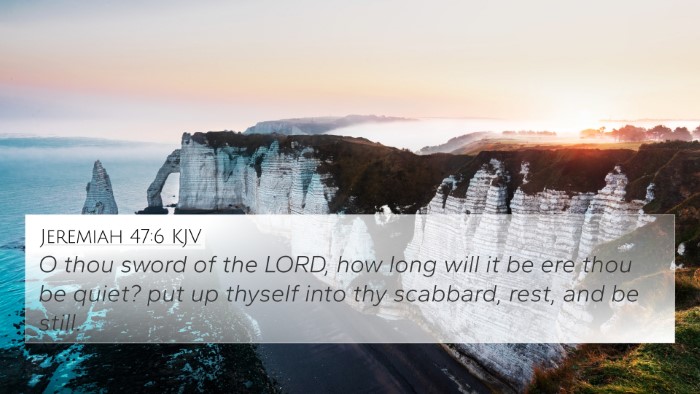
Jeremiah 47:6 (KJV) »
O thou sword of the LORD, how long will it be ere thou be quiet? put up thyself into thy scabbard, rest, and be still.
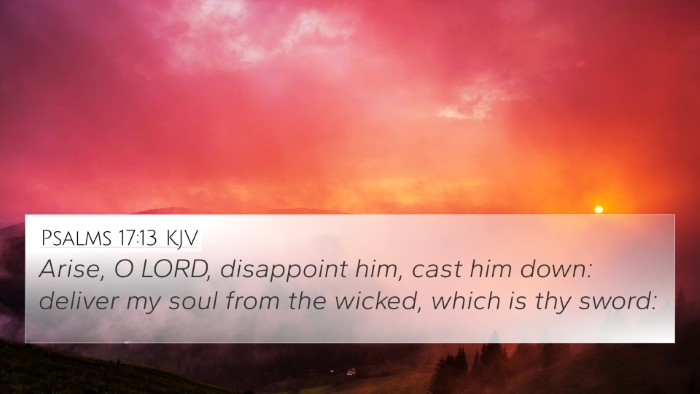
Psalms 17:13 (KJV) »
Arise, O LORD, disappoint him, cast him down: deliver my soul from the wicked, which is thy sword:
Zephaniah 2:12 Verse Analysis and Similar Verses
Understanding Zephaniah 2:12
Zephaniah 2:12 states: "You, O Ethiopians, also, you shall be slain by my sword." This verse can be understood in the context of God's overarching judgment upon nations and peoples in the prophetic literature of the Old Testament.
Summary of Insights from Public Domain Commentaries
-
Matthew Henry:
Henry emphasizes that Zephaniah's message reaches beyond Israel to include the nations surrounding them. The mention of the Ethiopians represents God's sovereignty over all nations, highlighting that even the mighty will fall before Him. This serves as a warning to all who oppose divine authority.
-
Albert Barnes:
Barnes points out that the Ethiopians, known for their prowess and military strength, will not escape God’s judgment. His commentary links this prophecy to the idea that no matter how strong a nation may appear, it is beholden to God's will. This serves to remind believers of God's control over history and nations.
-
Adam Clarke:
Clarke elaborates on the term "Ethiopians," noting that it may refer to Cushites or those from the region south of Egypt. He explains that the judgment spoken of is a part of God's justice and serves as a prophecy regarding their eventual downfall due to their idolatry and opposition to Israel.
Thematic Connections through Cross-References
In analyzing Zephaniah 2:12, several related Bible verses emerge, drawing thematic connections:
- Jeremiah 46:1-2: This passage refers to the message concerning Egypt, paralleling God's judgment on nations that oppose Him.
- Isaiah 18:1-2: Discusses a land beyond the rivers of Cush, connecting the geographical and contextual significance of Cush or Ethiopia in prophetic texts.
- Ezekiel 30:4-5: Here, God proclaims judgment against various nations, including Ethiopia, illustrating the scope of His authority.
- Amos 9:7: This verse reinforces the concept of God's dominion over the nations, reminding that all nations are created by Him and under His judgment.
- Zephaniah 1:11: Earlier in Zephaniah, we see a call to wail and mourn for the merchants and the oppression of the people, a theme that resonates with the impending judgment discussed.
- Habakkuk 3:6: This describes the nations' inability to withstand God’s power, emphasizing His sovereignty in confrontation with worldly powers.
- Revelation 14:20: Although situated in the New Testament, it reflects the ultimate judgment of God upon the nations, linking the immediate judgment in Zephaniah to the eschatological fulfillment.
Tools for Bible Cross-Referencing
For those seeking a deeper understanding and analysis of scripture, several tools are invaluable:
- Bible Concordance: A comprehensive reference to find verses related to specific terms.
- Bible Cross-Reference Guide: Guides that detail thematic and contextual links between various scriptures.
- Bible Study Methods: Techniques for effective cross-referencing and thematic study.
- Reference Resources: Various printed and digital resources available for thorough scripture exploration.
Conclusion on Zephaniah 2:12
Zephaniah 2:12 serves as a reminder of God’s justice transcending geographical and cultural boundaries. In the prophetic voice of Zephaniah, we find not just a warning, but an affirmation of God's sovereignty over the world, reaffirmed throughout scripture, urging us to recognize and submit to His divine authority.
Further Study Recommendations
To enhance knowledge in scriptural cross-referencing and understanding Biblical themes, consider:
- Engaging in cross-reference Bible study to see how different scriptures interact.
- Identifying connections between Old and New Testament for a holistic view of God's plan.
- Participating in group studies that focus on Bible verse parallels to strengthen community love and learning.
